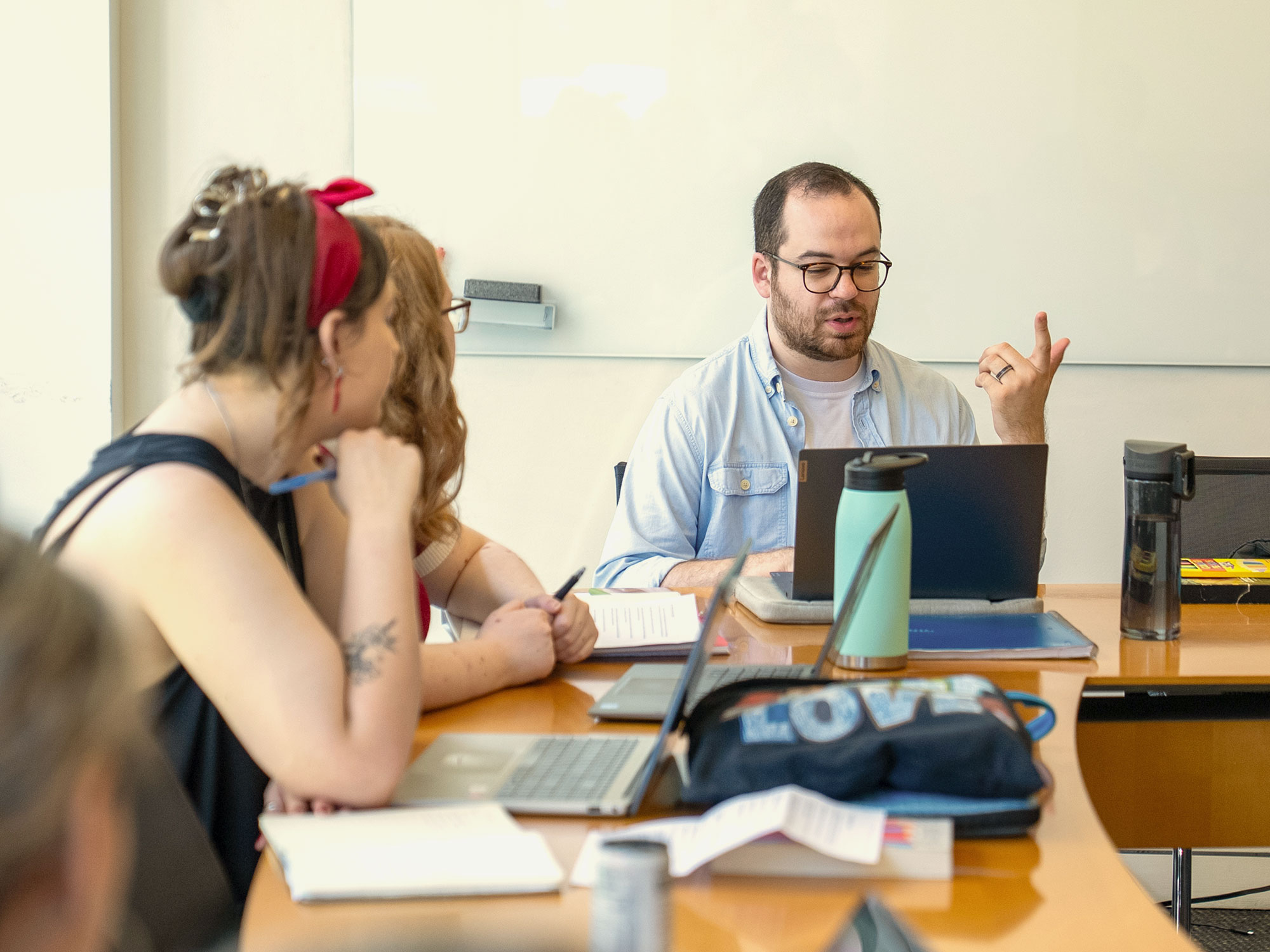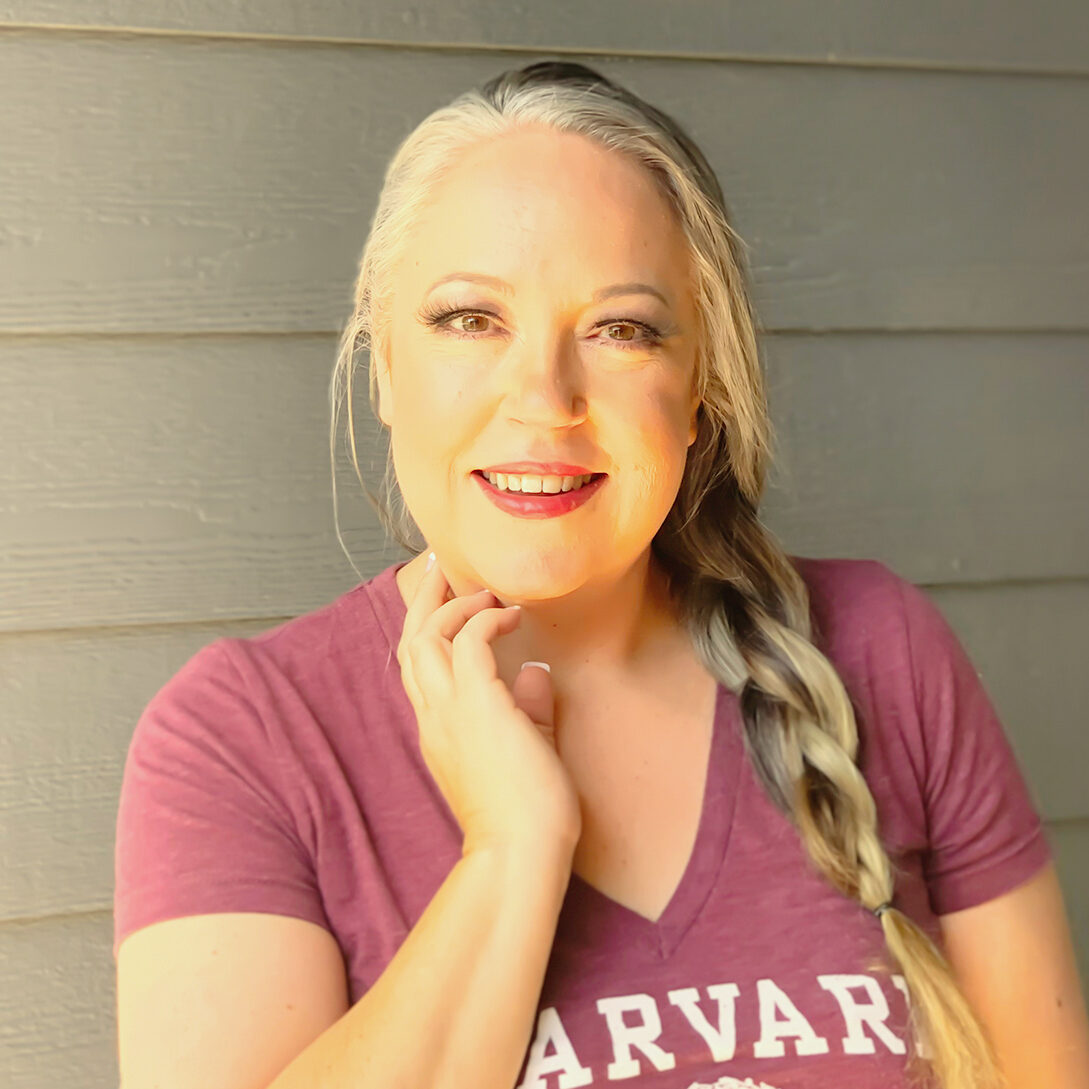Program Overview
The Creative Writing and Literature Master’s Degree Program is designed to help you grow as both a writer and a literary thinker. In this collaborative program, you can refine your voice, experiment with new genres, and strengthen your storytelling skills. Among peers and experienced faculty of writers — including Harvard College instructors — you’ll:
- Develop core narrative techniques, such as dialogue, character development, structure, and point of view.
- Explore new genres and styles to expand your creative range and build confidence.
- Sharpen your analytical skills and deepen your understanding of literary traditions.
- Receive feedback on your writing in small, workshop-style courses.
- Graduate with a Harvard University degree: Master of Liberal Arts (ALM) in Extension Studies in the field of Creative Writing and Literature.
Courses
To earn the degree, you’ll complete 12 courses, including a Writer's Residency on campus at Harvard.
Example Courses
- Advanced Fiction: Writing the Novel
- The Art of the Pitch
- Advanced TV Writing: Comedy Sketch Writing
- Asian American Literature
- Advanced Screenwriting: Adapting Your Fiction to Film
Capstone or Thesis
You’ll choose between two paths for your final creative project — a capstone or thesis — and join fellow writers for the Creative Writing Summer Residency in Cambridge, a week of focused writing, feedback, and inspiration.
Admissions
The path to your degree begins before you apply to the program. You’ll earn your way in through our performance-based admissions, completing coursework for admission and earning credits toward your degree right away.
Next Start Term
You can enroll in your first admission course this summer or fall.
Course registration opens March 3 for summer and in mid-July for fall.
Featured Faculty
Our creative writing instructors bring a genuine passion for teaching, with students giving our faculty an average rating of 4.7 out of 5.
Talaya Adrienne Delaney
Lecturer in Extension, Harvard University
Elisabeth Sharp McKetta
Writer
Bryan Delaney
Playwright and Screenwriter
Hugh Fink
Writer and Producer
Steve Almond
Author
Chris Mooney
Author
Career Opportunities & Alumni Outcomes
Graduates of our Creative Writing and Literature Master’s Program have writing, research, and communication jobs in the fields of publishing, advertising/marketing, fundraising, secondary and higher education, and more. Some alumni continue their educational journeys and pursue further studies in other nationally ranked degree programs, including those at Boston University, Brandeis University, University of Pennsylvania, and Cambridge University.
Sample Alumni Titles
- Novelist
- Marketing Manager
- Director of Publishing
- Senior Research Writer
Sample Alumni Employers
- Kaplan
- Little, Brown & Company
- New York University (NYU)
- Bentley Publishers
Program Benefits
Engage in a community of writers in online workshop-style classes. 95% of recent graduates would recommend the program.
Attend a writer's residency in Cambridge with agent & editor networking opportunities.
Craft a thesis or capstone of publishable creative work.
Access career advising and other services through Harvard’s Mignone Center for Career Success.
Become a member of the worldwide Harvard Alumni Association (400,000+ members) and Harvard Extension Alumni Association (29,000+ members).
Tuition & Financial Aid
Learn more about the cost of attendance.
FAQs
Is a Degree in Creative Writing and Literature Worth It?
A master’s degree in creative writing and literature prepares you for a variety of career paths in writing, literature, and communication. Many of our graduates have gone on to publish their work and apply what they’ve learned in their careers.
You could become a professional writer, editor, literary agent, marketing copywriter, or communications specialist. You could also go the academic route and bring your knowledge to the classroom to teach creative writing or literature courses.
Check out our alumni spotlights to see what creative writing graduates have done.
How Long Does Completing the Creative Writing and Literature Graduate Program Take?
Program length is ordinarily anywhere between 2 and 5 years. It depends on your preferred pace and the number of courses you want to take each semester.
For an accelerated journey, we offer year round study, where you can take courses in fall, January, spring, and summer.
While we don’t require you to register for a certain number of courses each semester, you cannot take longer than 5 years to complete the degree.
What Skills Do You Need Prior to Applying for the Creative Writing and Literature Degree Program?
Harvard Extension School does not require any specific skills prior to applying, but in general, it’s helpful to have solid reading, writing, communication, and critical thinking skills if you are considering a creative writing and literature master’s degree.
Initial eligibility requirements can be found on our creative writing and literature master’s degree requirements page.
What Is the Difference Between a Thesis and a Capstone?
Capstone track students work with a cohort of classmates on a creative writing project in a two-semester course that meets regularly in the fall and spring. Capstone students workshop their projects in class and may complete structured exercises to help them develop their creative work.
Thesis track students work independently on a creative writing project and meet one-on-one with a thesis director. In preparation for the thesis, students take the Crafting the Thesis Proposal tutorial. During the CTP tutorial, students work with their research advisor to develop an essay centered on the writer’s craft, on a topic of their design, with the goal of helping them to think through a practical craft issue that pertains to the creative work that will be their thesis.
—
Capstone track students work with a cohort of classmates on a creative writing project in a two-semester course that meets regularly in the fall and spring. Capstone students workshop their projects in class and may complete structured exercises to help them develop their creative work.
Thesis track students work independently on a creative writing project and meet one-on-one with a thesis director. In preparation for the thesis, students take the Crafting the Thesis Proposal tutorial. During the CTP tutorial, students work with their research advisor to develop an essay centered on the writer’s craft, on a topic of their design, with the goal of helping them to think through a practical craft issue that pertains to the creative work that will be their thesis.

